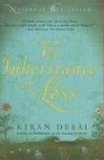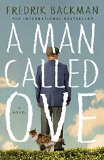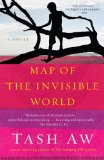Summary | Excerpt | Reading Guide | Reviews | Beyond the book | Read-Alikes | Genres & Themes | Author Bio

From the book jacket: Published to extraordinary acclaim, The
Inheritance of Loss heralds Kiran Desai as one of our most insightful
novelists. She illuminates the pain of exile and the ambiguities of
postcolonialism with a tapestry of colorful characters: an embittered old judge;
Sai, his sixteen-year-old orphaned granddaughter; a chatty cook; and the cook’s
son, Biju, who is hopscotching from one miserable New York restaurant to
another, trying to stay a step ahead of the INS.
When a Nepalese insurgency in the mountains threatens Sai’s new-sprung romance
with her handsome tutor, their lives descend into chaos. The cook witnesses
India’s hierarchy being overturned and discarded. The judge revisits his past
and his role in Sai and Biju’s intertwining lives.
Comment: Set in the
mid-1980s in Kalimpong, high in the northeastern Himalayas (where Desai spent
some of her childhood), The Inheritance
of Loss centers on three people living together in an ancient
house named Cho Oyu - an embittered old British-educated judge (in the words of
the novel, one of the "ridiculous Indians .... who couldn't rid themselves
of what they had broken their souls to learn"), his orphaned granddaughter, and
their cook. As the story unfolds, insurgency is growing in the region as
the people press their demands for an independent state (see sidebar for more on
this). This growing unrest is contrasted against that of Indians settled
abroad, in particular the cook's son, Biju, an illegal immigrant who stumbles
from one job to another in the USA.
When talking of the characters in The Inheritance of
Loss, and of her own life, Kiran Desai says, "The
characters of my story are entirely fictional, but [the journeys of my grandparents] as well as my own provided insight into what it means to travel
between East and West and it is this I wanted to capture. The fact that I live
this particular life is no accident. It was my inheritance."
Desai describes The Inheritance of Loss as a book that "tries
to capture what it means to live between East and West and what it means to be
an immigrant," and goes on to say that it also explores at a deeper level, "what
happens when a Western element is introduced into a country that is not of the
West" - which happened during the British colonial days in India, and is
happening again "with India's new relationship with the States." Her third
aim was to write about "what happens when you take people from a poor country and
place them in a wealthy one". "How does the imbalance between these two worlds
change a person's thinking and feeling? How do these changes manifest themselves
in a personal sphere, a political sphere, over time?"
In her words, "These are old themes that continue to be relevant in today's
world, the past informing the present, the present revealing the past."
As one reviewer comments, "although relieved by much humor, The Inheritance
of Loss may strike many readers as offering an unrelentingly bitter view. But
then, this is the invisible emotional reality Desai uncovers as
she describes the lives of people fated to experience modern life as a
continuous affront to their notions of order, dignity and justice. We do not
need to agree with this vision in order to marvel at Desai's artistic power in
expressing it."
"[People in the West are] scarcely aware of the overwhelming feeling of humiliation that is experienced by most of the world's population [which] neither magical realistic novels that endow poverty and foolishness with charm, nor the exoticism of popular travel literature manages to fathom." - Nobel Prize winner Orhan Pamuk speaking after 9/11.
About the Author: Kiran Desai was born in India in 1971, she lived in Delhi until she was 14, then
spent a year in England,before her family moved to the USA. She completed
her schooling in Massachusetts before attending Bennington College; Hollins
University and Columbia University, where she studied creative writing, taking two years off to
write Hullabaloo in the Guava Orchard.
Her mother is Anita Desai, author of many books, three of which
have been short listed for the Booker Prize: Clear Light of Day (1980), In Custody (1984) and Fasting, Feasting
(1999). Anita Desai currently teaches writing at MIT. Her maternal
grandmother was German, but left Germany before World War II and never returned.
Her grandfather was a refugee from Bangledesh. Her paternal grandparents came
from Gujarat, and her grandfather was educated in England.
Although Kiran has not lived in India since she was 14, she returns to the family home in
Delhi every year.
She first came to literary attention in 1977 when she was published in the
New Yorker and in Mirrorwork, an anthology of 50 years of Indian
writing edited by Salman Rushdie - Strange Happenings in the Guava Orchard
was the closing piece. In 1998, Hullabaloo in the Guava Orchard, which had taken four years to write,
was published to good reviews. She says, "I think my first book was filled with all that I loved most about India and knew I
was in the inevitable process of losing. It was also very much a book that came
from the happiness of realizing how much I loved to write."
Eight years later, The Inheritance of Loss was
published in early 2006, and won the 2006 Booker Prize last week.
"Writing, for me, means humility. It's a process that involves fear and doubt, especially if you're writing honestly. I imagine businessmen feel smug at least twice a day. Writers? The moments are rare." - Kiran Desai.
![]() This review
first ran in the October 19, 2006
issue of BookBrowse Recommends.
This review
first ran in the October 19, 2006
issue of BookBrowse Recommends.

If you liked The Inheritance of Loss, try these:

by Fredrik Backman
Published 2015
In this bestselling and delightfully quirky debut novel from Sweden, a grumpy yet loveable man finds his solitary world turned on its head when a boisterous young family moves in next door. Winner of the 2014 BookBrowse Debut Novel Award.

by Tash Aw
Published 2010
From the author of the internationally acclaimed, award-winning The Harmony Silk Factory comes an enthralling new novel that evokes an exotic yet turbulent and often frightening time and place. Map of the Invisible World is the masterly, psychologically rich tale of three lives indelibly marked by the past—their own and Indonesia's.
Your guide toexceptional books
BookBrowse seeks out and recommends the best in contemporary fiction and nonfiction—books that not only engage and entertain but also deepen our understanding of ourselves and the world around us.